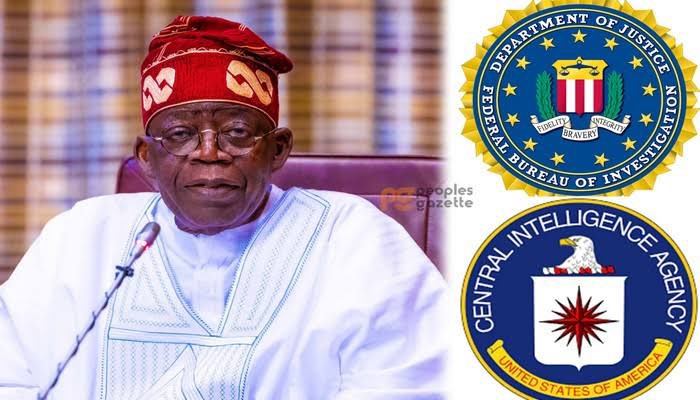A U.S. federal judge has ruled that law enforcement agencies must release documents connected to past investigations involving Nigerian President Bola Ahmed Tinubu.
The ruling, delivered by Judge Beryl Howell in Washington, D.C., stems from a legal effort to obtain information dating back to the 1990s.
The case was initiated by American activist Aaron Greenspan. In 2023, he sued agencies including the FBI, DEA, IRS, and the State Department under the Freedom of Information Act (FOIA). He claimed these agencies had withheld records tied to a Chicago-based heroin trafficking network that allegedly involved Tinubu and others.

Between 2022 and 2023, Greenspan filed several FOIA requests. He was seeking documents on four individuals linked to the alleged drug ring: Bola Tinubu, Lee Edwards, Mueez Akande, and Abiodun Agbele. However, the agencies responded with a “Glomar response,” meaning they would neither confirm nor deny the existence of the files.
Unhappy with this response, Greenspan took the matter to court. He argued that previous public records already confirmed the existence of related investigations. Therefore, he believed the agencies had no valid reason to maintain secrecy.
At one point, President Tinubu’s legal team attempted to join the case. They said the information involved private tax records and sensitive law enforcement files. But Judge Howell disagreed. She ruled that the public already had access to parts of the investigation, making continued secrecy unreasonable. As a result, the court ordered the FBI and DEA to stop withholding information under the Glomar principle.
Not every agency was affected by the ruling. The CIA, for example, was permitted to maintain its stance. The court found that Greenspan failed to prove the agency had ever acknowledged any records related to Tinubu.
This case also reignites public interest in a controversy that resurfaced during Nigeria’s 2023 presidential election. Back in 1993, U.S. authorities confiscated $460,000 from an account linked to Tinubu. Investigators believed the funds were proceeds from narcotics activity. That forfeiture became a point of debate during the election campaigns.
Court documents reveal more details. An affidavit from an IRS agent described how Tinubu’s name surfaced in a broader probe involving drug trafficking in Chicago. The agent said multiple U.S. agencies had tracked bank accounts allegedly tied to drug money and connected them to Tinubu.
Agbele, one of the men involved, was arrested after selling heroin to an undercover agent. He later cooperated with the authorities. During questioning, he mentioned Akande as his uncle—another figure tied to Tinubu. According to DEA sources, Agbele made multiple drug sales across the Chicago area. Investigators followed the trail of money and found patterns consistent with laundering.
Judge Howell’s order now requires the FBI, DEA, and other agencies excluding the CIA to submit a progress report by May 2. They must explain what information still remains in dispute and how they intend to proceed with the release.
As the situation unfolds, one thing is clear: the case has the potential to reveal significant information. Whether it will change public perception or political narratives in Nigeria remains uncertain. However, the door has now opened for more answers to surface—answers that have been hidden for decades.



